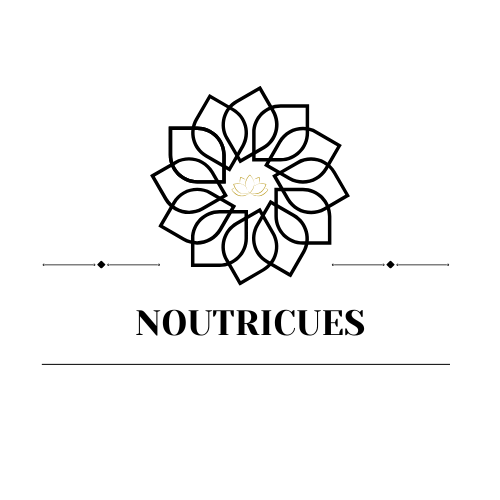The Hidden Cost of Stress: How It Impacts Your Career and Productivity
By Lethabo Phaahla
In the demanding world of modern work, stress often feels like an inevitable part of the job. While short-term stress can sometimes drive performance, chronic stress is a silent saboteur, undermining your productivity, focus, and long-term career potential. In this post, we’ll explore how stress impacts your professional life and, most importantly, what you can do to take control.
The Science of Stress: What Happens to Your Brain and Body
Stress is a natural physiological response designed to help us react to immediate challenges. However, in a work context, stress is often prolonged, leading to chronic activation of the body’s “fight-or-flight” system.
The result leads to excess levels of cortisol, the primary stress hormone, which can impair cognitive functions like memory, focus, and problem-solving [1]. Over time, this can create a vicious cycle where stress reduces your ability to cope with challenges, leading to further stress and diminished performance.
Productivity Under Pressure: Why Stress Drains Your Efficiency
It’s no surprise that stress and productivity don’t mix well. Workplace stress affects 80% of employees globally, with nearly half admitting they struggle to manage it effectively [2]. Chronic stress leads to:
Burnout: A state of emotional, mental, and physical exhaustion that significantly reduces motivation and performance [3].
Presenteeism: Being physically at work but mentally disengaged. Studies estimate presenteeism costs businesses far more than absenteeism [4].
The financial toll is staggering. Depression and anxiety alone—conditions often linked to stress—cost the global economy an estimated $1 trillion annually in lost productivity [1].
How Stress Derails Focus and Creativity
Stress doesn’t just reduce output; it also compromises quality. Chronic stress interferes with the prefrontal cortex, the part of the brain responsible for focus, critical thinking, and creativity [5]. Professionals under stress often report:
Difficulty concentrating.
Reduced ability to solve problems or think strategically.
Struggles with time management.
A recent Gallup survey found that 60% of employees believe stress directly impacts their ability to meet deadlines or produce high-quality work [6].
The Long-Term Career Risks of Unchecked Stress
If left unmanaged, stress can have far-reaching effects beyond daily productivity. Long-term stress contributes to physical health issues like heart disease and insomnia, which can increase absenteeism or even lead to premature burnout. It also impacts emotional resilience, leaving professionals more prone to making errors or struggling in leadership roles.
Ultimately, chronic stress can hinder career growth by eroding confidence, focus, and the ability to perform under pressure.
Actionable Strategies to Reduce Workplace Stress
While stress is a common part of professional life, it doesn’t have to control your career. Here are some practical steps you can take:
Practice Mindfulness: Techniques like mindfulness and meditation reduce stress by improving your ability to stay present and focused [7].
Prioritize Sleep: Poor sleep exacerbates stress, while quality rest restores cognitive function and emotional resilience. Aim for 7–9 hours per night.
Incorporate Physical Activity: Regular exercise not only lowers cortisol levels but also boosts endorphins, improving mood and energy.
Set Boundaries: Establish clear work-life boundaries to prevent overwork and protect time for recovery.
Seek Support: Whether through a coach, therapist, or workplace wellness program, getting professional guidance can provide tools to manage stress effectively.
Conclusion
Stress is an unavoidable reality for most professionals, but it doesn’t have to define your career. By taking proactive steps to manage stress, you can enhance productivity, improve focus, and build resilience for long-term success. Remember, prioritizing your well-being is one of the most strategic career moves you can make.
Ready to Take Control of Stress and Boost Productivity?

Stress doesn’t just affect individuals—it impacts entire teams and businesses. If you’re looking for personalized guidance to help you reduce stress, improve focus, and enhance overall well-being, I’d love to help.
✨ For Individuals: Take the first step toward a healthier, more balanced life with one-on-one holistic coaching designed to fit your unique needs.
🍃 Book a Free Discovery Call today to discuss how we can work together to achieve your wellness goals!
Schedule your call with me, Lethabo Phaahla, and let’s create a healthier, more productive future, one step at a time.
References
1. American Psychological Association. (2020). Stress Effects on the Body.
2. The American Institute of Stress. (2019). Workplace Stress.
3. Maslach, C., & Leiter, M. P. (2016). Burnout: A Multidimensional Perspective.
4. Johns, G. (2010). Presenteeism in the Workplace: A Review and Research Agenda.
5. McEwen, B. S. (2008). Central Effects of Stress Hormones in Health and Disease: Understanding the Protective and Damaging Effects of Stress and Stress Mediators.
6. Gallup. (2022). The State of the Global Workplace.
7. Kabat-Zinn, J. (2003). Mindfulness-Based Stress Reduction (MBSR) in the Workplace.
Join our Newsletter
PARTNER WITH US
QUICK LINKS
CONTACT INFORMATION
Email: info@noutricues.com
Copyright © 2024 NOUTRICUES - All Rights Reserved
